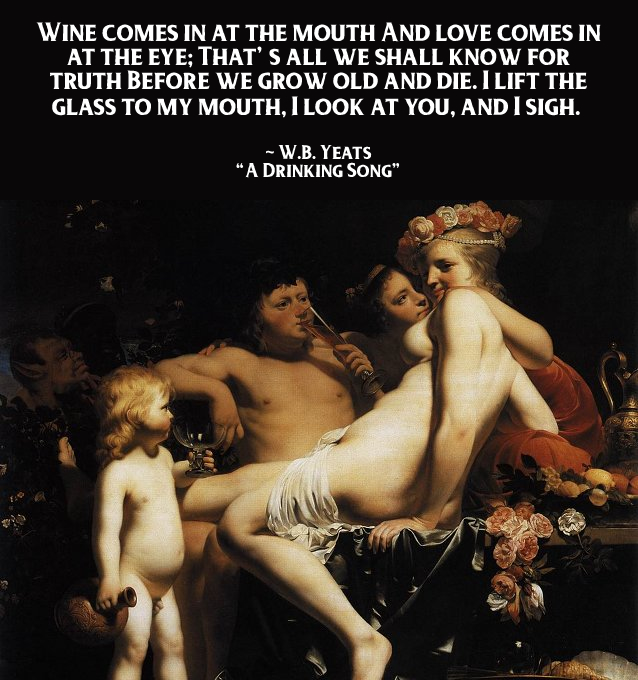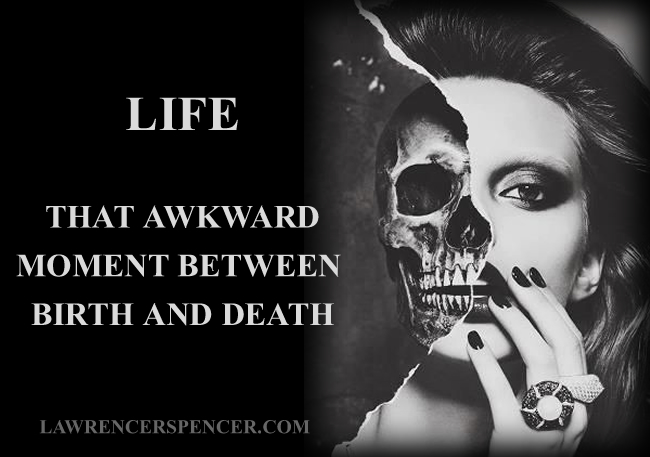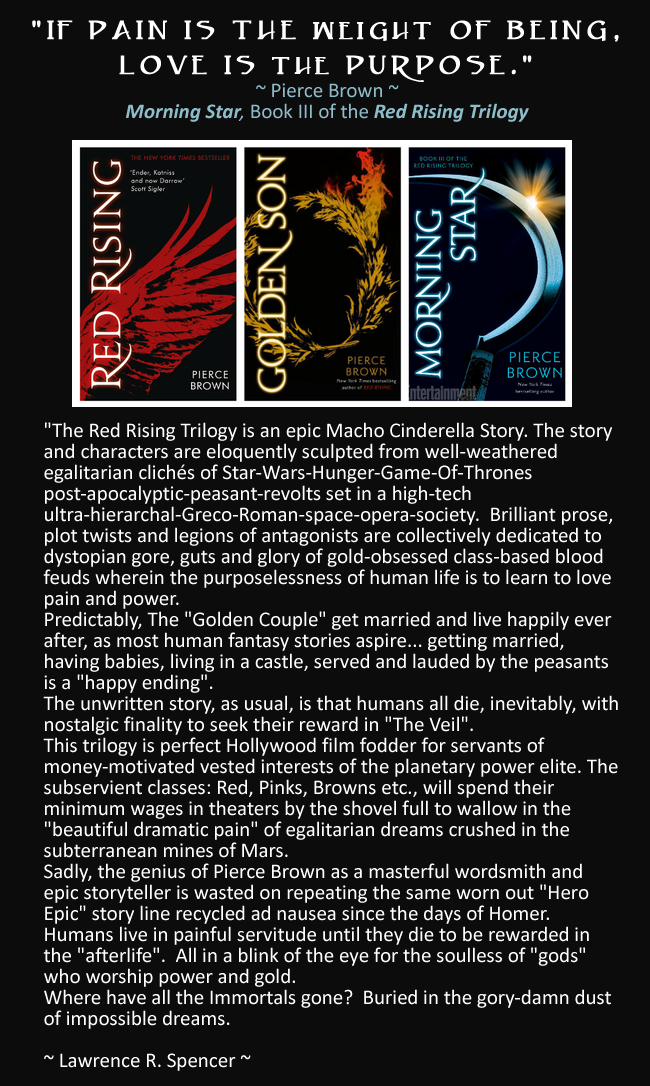Republished by Blog Post Promoter
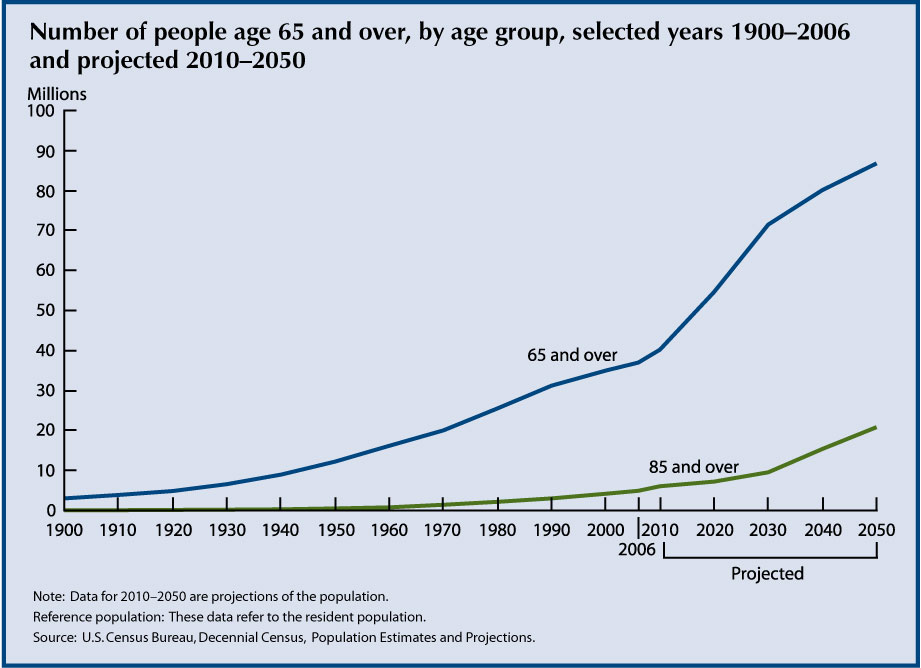
SURVIVAL OPTIONS
by Lawrence R. Spencer
Like millions of world citizens I am slipping down the Rabbit Hole of Physical Mortality toward a certain and irrevocable death of my physical body. I will be 65 years old in August of 2011, along with 36.3 million others in the USA. There will be 86.7 million people 65 and over by the year 2050. That’s a 147% projected increase in the 65-and-over population between 2000 and 2050. By comparison, the population as a whole would have increased by only 49 percent over the same.
THE VALUE OF LIVING
Isn’t the purpose of living in a body to experience as much joy and pleasurable experience as possible? Sumptuous smells, sexual sensation, marvelous sights, exhilarating sounds, unpredictable motions, textures, physical / emotional impact and dramatic moments of interaction with other living beings are worthy reasons for life. Wonder, intellectual intrigue, mental challenges, freedom to play and barriers to accomplishment are all a part of the games that make life a pleasant preoccupation.
Conversely, isn’t the purpose of every living being to avoid painful sensation and emotion, failure, loneliness and oblivion?
Memories of pleasure never diminish from the mind: remember your first true love? Your most exquisite moments of sexual bliss or the most tender moments of compassion, cuteness, communication and compassion? The joys of living endure in our heart and mind forever. We can resurrect and relive the emotional rapture of music, the aesthetics of dance, the exuberance of sporting competition, dramatic performances, victories in life and each passionate moment of love: simply by remembering. Every moment of pleasure can be relived in the present as though it happened yesterday!
Painful memories, however, can be suppressed and forgotten with medication, drugs, time and ultimately with death. Pain does not linger beyond consciousness. For millennia sages and seers have assured us that it is washed away in the amnesia waves of afterlife. Likewise, the newborn baby does not suffer from memories of a life recently departed. Rather, it eagerly grasps the vigorous promise of action, joy and the sensations of new adventures that await.
Isn’t it logical, then, to live out one’s natural life with as much enjoyment as possible? Do the supposed benefits of physical longevity justify the disability, pain, dysfunction, financial expense and burden of labour placed upon others who must become your care-givers during these so-called “Golden Years” of life?
THE COSTS OF DYING
In truth, the vast majority of people live those “golden” years in ever-increasing pain, loneliness and sorrow — a relentless accumulation of physical and emotional pain and dysfunction during their declining years. They must also endure agony and grief as their life partners, friends, family and workmates wither and die around them.
In addition, the majority of people over 65 years of age can anticipate a multitude of diseases such as heart failure, cancer, diabetes, arthritis, pneumonia, atrophied muscles, dementia, failing memory, inability to function sexually, digestive disorders and depression to name of few. And finally, the ultimate certainty of death.
What about the financial expense involved to support an aging person for 10, 20 or 30 years after they leave the work force? What are the cumulative expenses of hospitalization, medical examinations, medical insurance, medical testing, prescription drugs, long-term care assistance and medical support? How much of one’s accumulated life savings or investments are consumed in order to keep an old, disabled, pain-riddled body alive for these last, lingering days?
$100,000? $500,000? $1,000,000? $5,000,000 or more?
In the US we spend an average of $6,500 to bury a depleted corpse six feet under the ground. There are about 23,000 active cemeteries in the United States alone. Every year we bury enough embalming fluid to fill eight Olympic-size swimming pools, enough metal to build the Golden Gate Bridge, and so much reinforced concrete in burial vaults that we could build a two-lane highway from New York to Detroit!
How much real estate is used to accommodate the billions of dead bodies that pile up under the Earth in a decade? What could the millions of acres of land used for graveyards be used for instead? The cost of maintaining cemeteries is billions of dollars a year! For what purpose? To remind living people that you had a body once, but that it’s dead now? Is this the height of vanity or the abyss of stupidity? Or both.
What does the tremendous expense of dying and death really buy? Who is the recipient of this money? Doctors, hospitals, drug companies, pharmacies, insurance companies, assisted living facilities, morticians, funeral homes, lawyers, government tax collectors, and possibly – if you plan very carefully and don’t outlive your life savings – your own family.
YOUR FINAL VACATION
How much pleasurable life experience could you pay for with the same amount of money if you spent it on a few years of pleasurable traveling, luxurious living and youthful adventures? What kind of vacation could you pay for with $350,000 or $750,000? How about 2 years in a luxury condominium on the beach in Maui? Or, perhaps first class accommodations on an 18-month luxury cruise ship around the world? Perhaps you could visit every beautiful travel destination you ever imagined: Tuscany, Paris, The Norwegian fjords, New Zealand, Switzerland, Banff, or the Grand Tetons.
Or, with a little planning the benefactors of your life insurance policy upon your death could live a more comfortable, pleasurable life. You could invest the same money in putting all of your grandchildren through college. Why not become the benefactor of a charity that creates a better future for the adults of tomorrow, or ensures the well-being of the natural environment for future generation? Your generosity will ensure that you name lives in the mind and hearts of others for centuries: at least as engraved on a plaque or monument or building façade, instead of a gravestone.
What if we combined the resources spent on supporting each of our 150 pounds of decaying flesh for the last 20 or 30 more years of painfully unproductive lives? These accumulated resources, carefully distributed and ethically invested, could be used to turn Earth into an actual Paradise for all living creatures, the environment and for future generations of people.
How you would feel if you suddenly become completely certain that you would return to live again shortly after your death to live a new body, and begin a new life?
VOLUNTARY EUTHANASIA AND CREMATION
If you knew this could you chose to knowingly plan a painless end of your own life? Does it make any sense to suffer through decades of pain and decay when you could leave this world in a blaze of joy, pleasure while ensuring a life of prosperity for the those to come – which may even effect your own future self?
The paraphrase the ethical enigma posed by the Elizabethan bard:
Painful, lingering death or a pleasant departure? That is the question. Whether it is nobler in the lives of men to bear the slings and arrows of misfortune, or, to die with grace and dignity with prosperity for all?
I wish you and all of us a happy and prosperous “Rest of your Eternity”.
_________________________________________
Here are a few EDUCATIONAL LINKS to assist you to make an educated decision about the options available to you:
Unassisted Euthanasia: http://www.exitinternational.net/page/Home
“Green Burial” (Cremation) Information: http://www.greenburials.org/index.htm
Cremation Facilities in your area: http://www.greenburialcouncil.org/finding-a-provider/
Planning Your “Final Cruise”: http://www.cruisecritic.com/
Charitable Giving: http://www.charitywatch.org/toprated.html


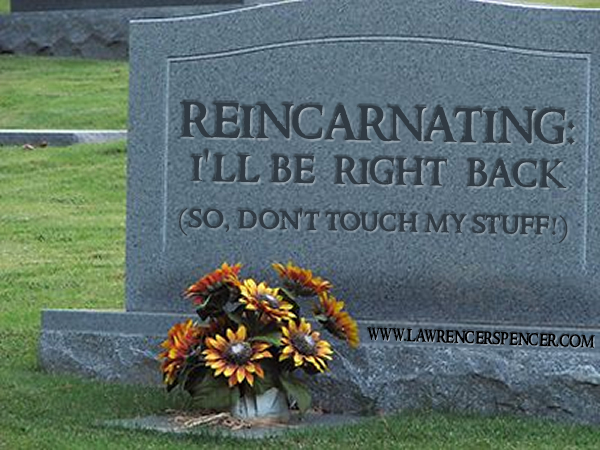

![1001 Things to Do While You're Dead | [Lawrence Spencer] 1001 Things to Do While You're Dead | [Lawrence Spencer]](https://ecx.images-amazon.com/images/I/51ROhipKNuL._SL175_.jpg)
